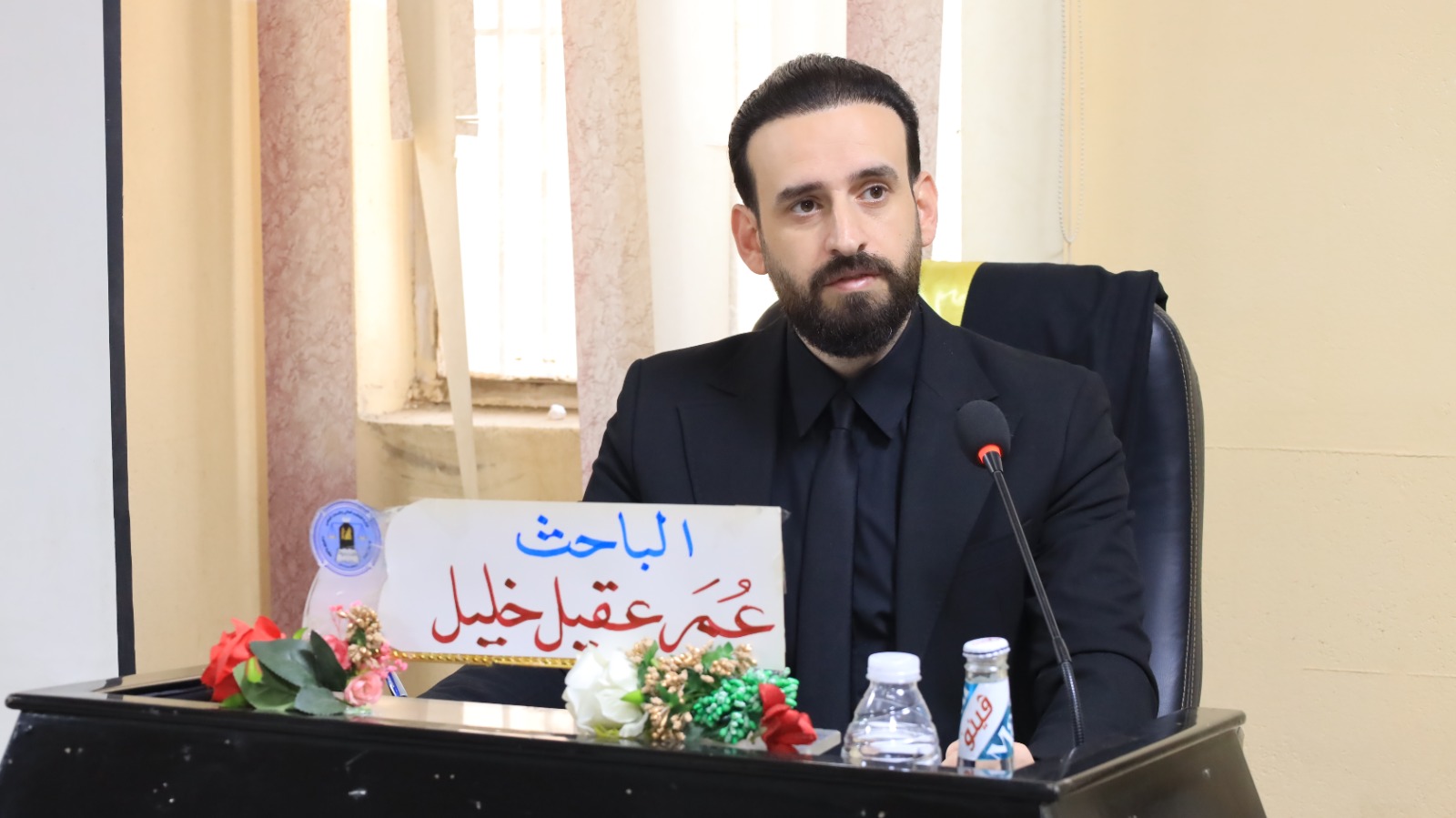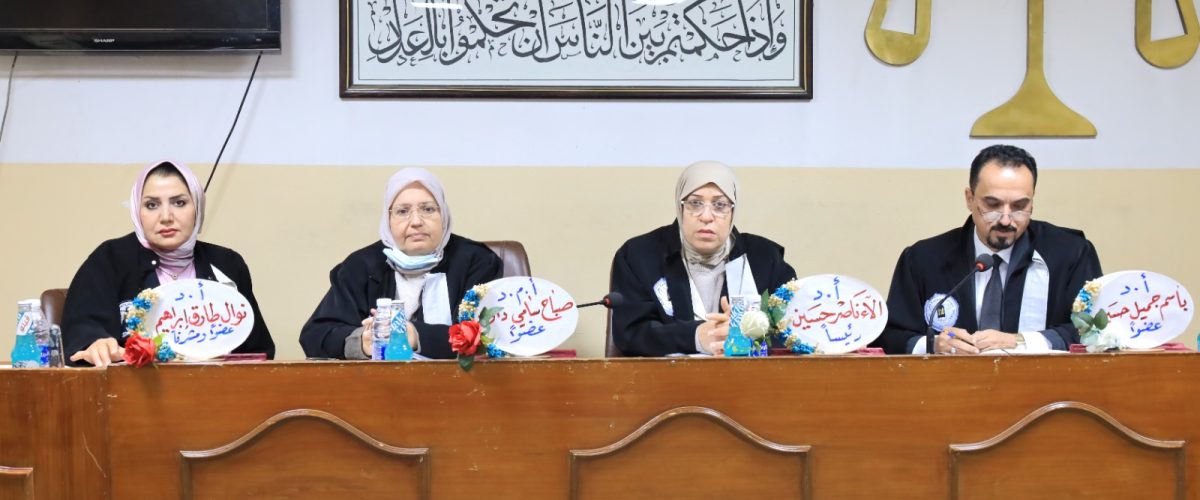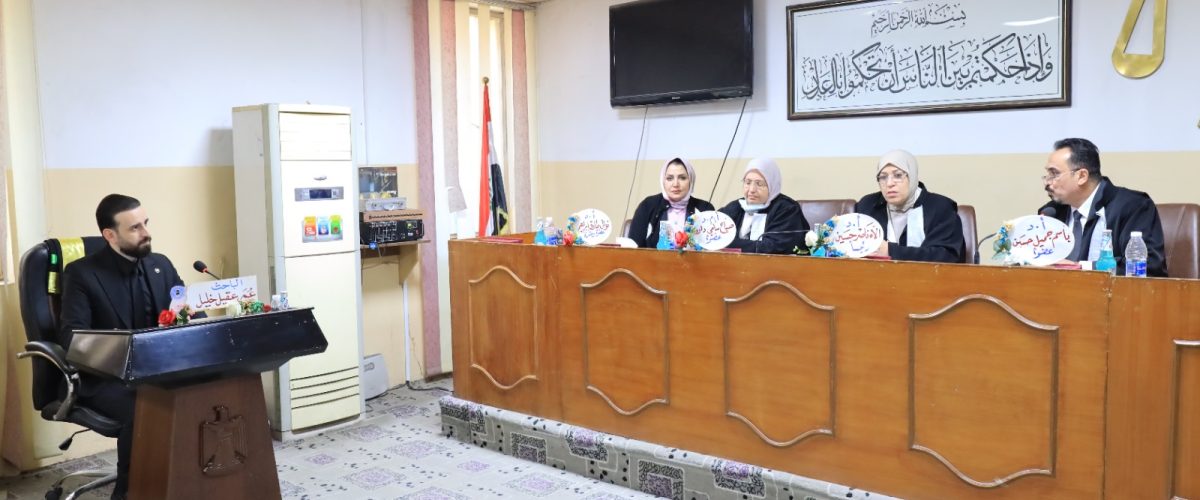The College of Law at the University of Baghdad discussed the master’s thesis in criminal law by student Omar Aqil Khalil, titled “Illegal Trafficking of Weapons in Iraqi Law,” on Thursday, February 13, 2025, in the college’s “Leadership Hall.”
The discussion committee consisted of:
- Prof. Dr. Alaa Nasser Hussein (Chairman)
- Prof. Dr. Basim Jameel Hussein (Member)
- Asst. Prof. Dr. Sabah Sami Dawood (Member)
- Prof. Dr. Nawal Tareq Ibrahim (Member and Supervisor)
The thesis aimed to study the severe consequences of the spread of illicit weapons trafficking, including increased crime rates, the spread of armed violence, and the deterioration of security conditions, leading to instability. Additionally, this phenomenon contributes to financing terrorist groups, increasing the severity of security threats on both the national and international levels. The impact is not limited to security alone but also extends to the economy, as it results in financial losses by diverting resources away from development efforts and focusing on the fight against the illicit weapons trade through black or gray markets.
The thesis was divided into three chapters. The first chapter addressed the conceptual framework of the crime of illicit weapons trafficking. The second chapter dealt with the legal structure of this crime, while the third chapter focused on the criminal response to the crime of illicit weapons trafficking.
The thesis concluded with several key recommendations, including:
- The Iraqi legislator should criminalize cases of weapons trafficking, such as buying or selling outside licensed shops and stores authorized to handle these weapons. It should also specify the types of weapons that cannot be trafficked, ensuring legal transactions and imposing appropriate penalties for violators to prevent such dealings and restrict repeat offenders.
- The Iraqi legislator should define the permissible quantity of weapons to be owned or trafficked, similar to the approach taken by the Egyptian legislator. This would help regulate the weapons trade more effectively.
- The legislator should provide a special focus on the penalty for weapons trafficking, distinct from other legal provisions, due to the severity of the offense. This might include amending Article (24/Second) of the Weapons Law to clarify the application of the penal provisions.
- A supplementary schedule should be added to the Weapons Law, following the example of the Jordanian legislator, to categorize prohibited weapons in a graded manner, adding new weapons to the scope of the law upon approval, such as sound weapons.
-
The sale, carrying, or manufacturing of sound weapons should be criminalized, as done by the Egyptian legislator. Financial penalties should be imposed on violators, with imprisonment for up to one year and a fine for repeat offenders.



